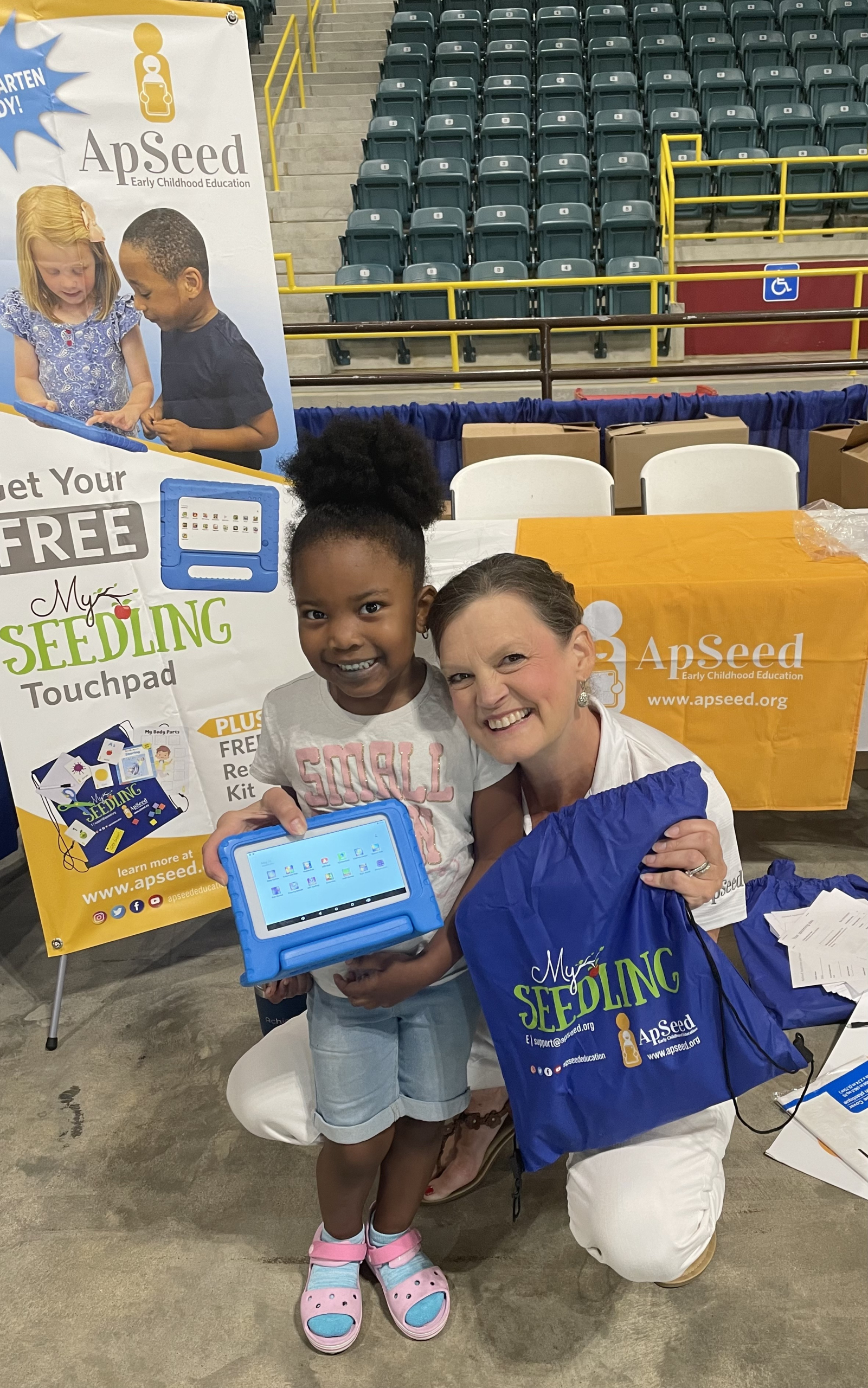Duplin Co. – North Carolina-based nonprofit ApSeed distributed 312 Seedlings – custom-built educational touchpads – free of charge at the Back to School Community Day event organized by Duplin County Partnership for Children on Aug. 19.
Each Seedling is free of charge and comes pre-loaded with NC State Board of Education-approved apps to boost literacy and language skills for preschoolers.
ApSeed is the North Carolina-based nonprofit that created and produces the Seedlings and it’s on track to give 762 Seedlings to at-risk preschoolers in Duplin County in 2023.
In April, ApSeed gave 150 Seedlings to the Duplin County Partnership for Children., and this fall ApSeed will give 300 Seedlings to Duplin County Head Start Centers and North Carolina Pre-K programs.
“Seedling educational touchpads make kindergarten-readiness fun and ApSeed is thrilled to provide them to young learners in Duplin County,” said ApSeed Executive Director, Dr. Julie Morrow. “Seedlings are designed specifically to help preschool-aged children become better prepared to start kindergarten by teaching them the foundations of literacy – letters and sounds, numbers, shapes, and colors.”
ApSeed partners with childcare providers, school districts, and local or state agencies, to distribute free take-home Seedlings to any preschool-aged child, but especially to those in federally-sponsored Pre-K, Title 1, and Head Start programs or who are served by the WIC (Women, Infants, and Children) program. Seedlings don’t connect to the internet or have a camera, so they’re as safe as possible for young learners.
“Every child deserves to succeed,” says ApSeed founder, Greg Alcorn. “That’s precisely why ApSeed created the Seedling educational touchpad. We are disrupting any educational delays caused by poverty, helping the youngest learners grow and bloom.”
Each Seedling comes with a Readiness Kit, a backpack filled with supplies and tools to complement the touchpad. These items teach fine motor/dexterity skills not covered by the Seedling, such as using scissors and building with blocks. The kit also includes a book and a whiteboard with markers. Even though they are distributed for free, each Seedling costs ApSeed $163 to manufacture. ApSeed’s goal is to get these custom-built touchpads in the hands of all preschoolers to boost kindergarten readiness. Since 2016, the organization has delivered nearly 17,000 Seedlings – free of charge – to children in North and South Carolina, New York City, and even as far away as Zimbabwe. ApSeed is funded thanks to private donors and government grants. Thanks to support from state legislators, the nonprofit recently received a $2.5M directed grant from the NC Dept. of Public Instruction (DPI), which enables it to serve 14 counties throughout North Carolina. But that was a one-time grant so ApSeed is actively looking for more public & private funders to keep planting Seedlings and growing their impact.
Children born into poverty are less likely to be kindergarten-ready, which can stunt their opportunities for growth and academic success before they’ve even started school. This affects any student burdened by poverty, but disproportionately impacts children of color.
The goal of these educational touch pads is to boost kindergarten readiness, which can dramatically improve the academic trajectory – and the economic mobility – of our youngest learners.
In Rowan County, preschoolers attending programs at four Title 1 (high poverty and high opportunity) schools have shown improvements from 21% to 83% in learning letters and numbers in one school year. Local Head Start programs scored 30% higher in literacy in one semester.
In Yadkin County, since 2019, children have scored 30% higher on identifying numbers and 40% on letter recognition.

